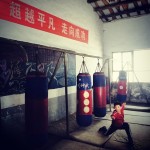 One way to globalize an art is to simplify it, give it rules that anyone can understand, and then submit it for an international review to the association most likely to be interested in the art. For martial arts, this process is known as sportification: Making the art of warfare and spiritual enlightenment into a game that anyone can play.
One way to globalize an art is to simplify it, give it rules that anyone can understand, and then submit it for an international review to the association most likely to be interested in the art. For martial arts, this process is known as sportification: Making the art of warfare and spiritual enlightenment into a game that anyone can play.
Sportification naturally divides the practitioners of any martial art into two opposing camps: purists who believe that simplification ruins and eventually mutates the art into something else; and pragmatists (for lack of a better word), who believe that without simplification and marketing, martial arts will die a slow, but inevitable death.
Both Judo and Taekwondo have gone through the process and were awarded with spots in the Summer Olympics, the former in 1968 at the Tokyo Games and the latter in 1988 at the Seoul Games. Given that the 2008 Summer Olympics were in Beijing, it would have stood to reason that the heavy lobbying by the Chinese government and the International Wushu Federation would have had a similar result. But wushu was denied. As consolation, the IWUF was allowed to stage a parallell event in Beijing, and continue fostering hopes that wushu will become an official Olympic Sport in 2020 at the Macao Games.
But the odds are slim. Seven sports are competing for one open spot in the 2020 Games, and wushu is competing against some tough customers, including the “united sport” of baseball and softball, squash, karate, and roller sports.


